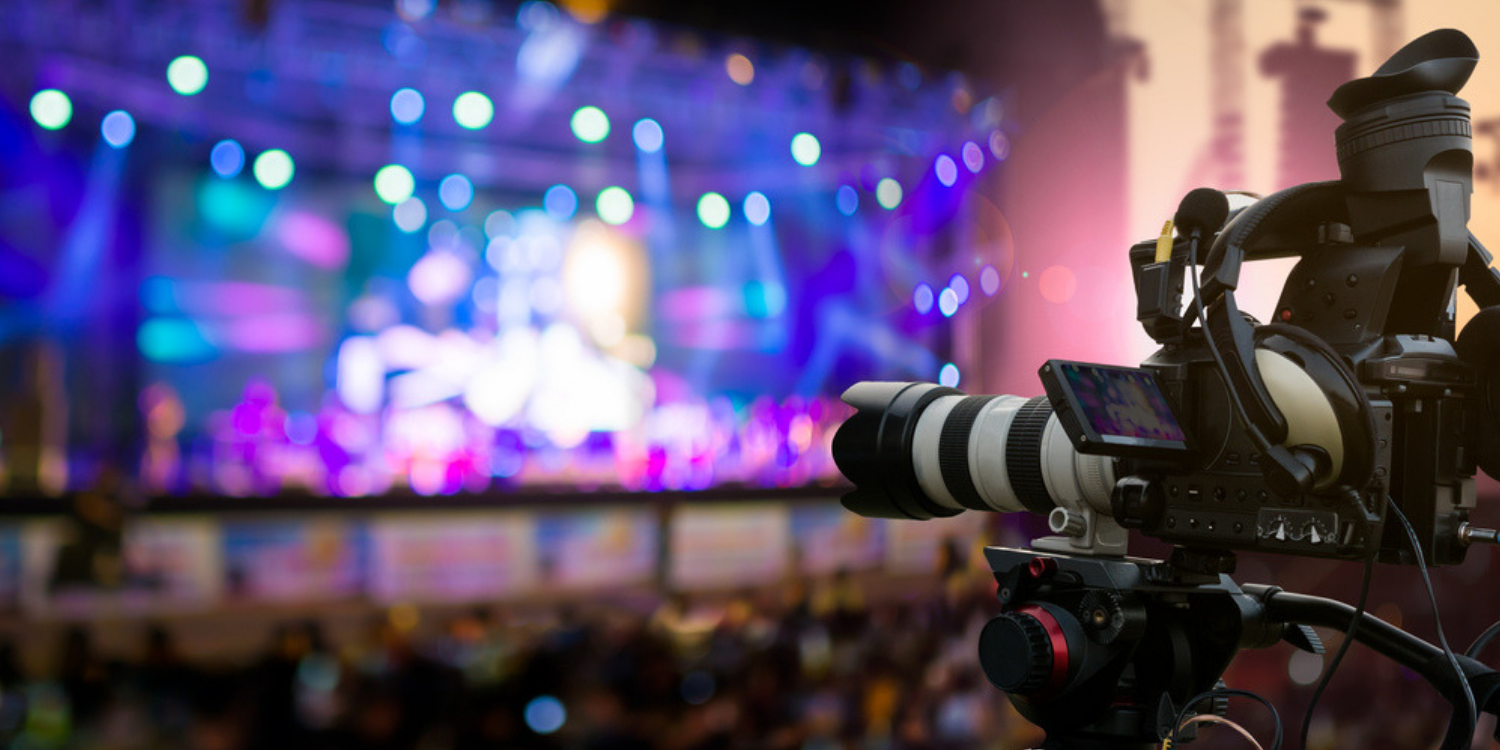Whether you've staged many shows, or are planning your first dance recital, you likely already know that venue selection is one of the most important decisions you will make! The venue you choose will impact how the audience sees, hears and experiences each performance. Here are our top tips on what to look for, ask and consider before booking your event space to make sure your recital goes off without a hitch!
1. Lighting Matters
Cameras need WAY more light to produce a quality image than you might imagine. With that said, lighting issues are the #1 concern we (the videographers) hear from parents about dance shows. One of the best things you can do pre-show is to meet with the venue's lighting technician to discuss your needs and ask questions. This will save lots of time during the tech rehearsal. Here are a few things to consider:
Based on the stage size and number of dancers per performance, will there be enough light for all dancers to be seen?
If the venue is using overhead lights, ask if they can add or adjust lights to even out hot-spots and shadows.
Use lighting effects sparingly. For example, strong red or blue LED lights don’t translate well on video.
Use spotlights if you can for props in routines to draw the audience’s attention and allow for it to be seen on video.
It’s also important to work with a videographer that will accommodate your lighting presences in addition to what will make for a great video. For example, lighting the dance the entire length of the dance. Some venues like to start the first 3-20 seconds of a dance being back-lit (think silhouette) and then pop up regular lights. If done for every dance the viewers can’t see their dancer until lights are brought up full. And isn’t that the point of a recital? Also, some venues will have the lights do an instant “fade to black” on the last beat of the music. Dramatic sure... but it eliminates the cuteness of that last pose & the audience loses the chance to soak that in.
2. Don’t Block The Stage
This may seem obvious, but it's worth mentioning that your parents and audience members want to see the performers, especially their feet! Having speaker boxes, light boxes, etc. on stage can prevent this. Do a walk-through of the venue ahead of time and ask if any special equipment will be on the stage. If so, ask if it's possible to move items to the side and out of the center view. If things cannot be moved, make sure to communicate this to your videographer and ask for tips on how cameras can be placed to capture all the special moments.
3. Consider your audience
For many dance teachers, the excitement from their dancers during a recital is one of the greatest rewards. But the fact that the performers are enjoying themselves does not mean that audience members are equally delighted. Even the most enthusiastic dancers and dynamic choreography lose their charm when viewers spend too much time in their seats. For that reason, it’s important to consider your audience when planning an event, especially the duration of it.
4. Auditorium Protocol
Prevent disorder in the house by making a plan for what happens in the auditorium seating area. Will ushers take tickets, hand out programs, or help people find their seat? What’s the procedure for patrons returning from the bathroom during the show? Record a pre-show announcement or place instructional signs on the entrance doors to remind patrons of in-house etiquette and policies.
Planning ahead and making sure parents and family members know what is expected during the recital will make for a better experience and allow everyone to enjoy the show without distractions!
5. Sound
Have you ever attended an event at a venue that was so loud, it was hard to hear others, causing you to strain your hearing and lose your voice, all in one night? That's caused by poor acoustics. Acoustics is just a fancy word for how sound travels through the venue. A low ceiling will make the venue seem cozy, but it will make it louder if it's packed. Alternatively, a large warehouse-style venue will result in echoes, or what architects refer to as "reverberation."
The acoustics of the venue can also impact if the audience will be able to hear specific dance routines like tap. When touring a venue, make sure to ask if mics can be used or added to enhance particular routines.
One thing you may not be able to plan for is music or tech malfunctions. These can catch even the most experienced performers off guard. For older performers who may be able to more easily recover from a music glitch, encourage them to continue to perform if a sound issue arises. If there is a sound or technology glitch during the show, work with your videographer team to see if those parts can be edited to enhance the final video.
Interested in learning more? Contact the perfectionists at Sharpshooters Video and learn how we can help make your show look and sound as sharp as possible!

